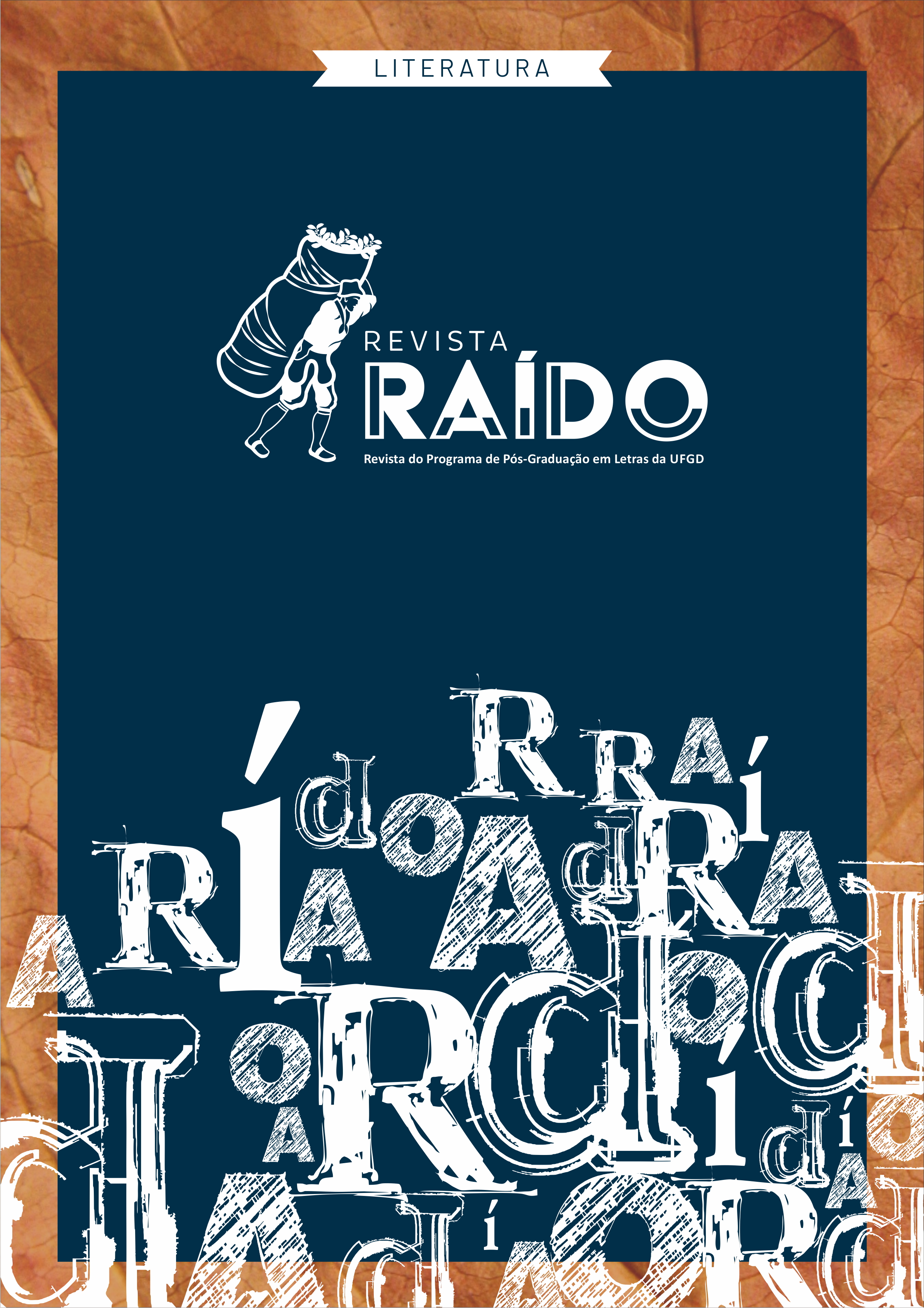Revisitando a “Carta Guarani Kaiowá”: repercussões, retomadas
DOI:
https://doi.org/10.30612/raido.v18i45.18919Keywords:
indigenous, Indigenous Cosmologies, Human Rights, Indigenous authorship. Indigenous literature. Indigenous books., Brazilian literature, Guarani, KaiowáAbstract
Foreword for the dossier Revisiting the "Carta Guarani Kaiowa": Aftermath, ressetlings by the guest editors Adalberto Müller and Alexandre Nodari
Downloads
References
Cunha, Manuela Carneiro da (1987). Os direitos do índio. Ensaios e documentos. São Paulo: Brasiliense.
D’Abbeville, Claude. (1975). História da Missão dos padres capuchinhos na ilha do Maranhão e terras circunvizinhas. Belo Horizonte/São Paulo: Itatiaia/EdUSP.
Derrida, Jacques. De la Grammatologie. Paris: Les Éditions de Minuit, 1967.
Derrida, Jacques. Gramatologia. 2ª. Edição. Tradução de Miriam Chnaiderman e Renato Janine Ribeiro. São Paulo: Perspectiva, 2019.
Graça, Antonio Paulo. (1998). Uma poética do genocídio. Rio de Janeiro: Topbooks.
Kambeba, Márcia Wayna. (2020) Saberes da floresta. São Paulo: Jandaíra.
Lévi-Strauss, Claude. (1957). Tristes trópicos. Tradução de Wilson Martins. São Paulo: Anhembi.
Librandi-Rocha, Marília. (2014). A Carta Guarani Kaiowá e o direito a uma literatura com terra e das gentes. estudos de literatura brasileira contemporânea, n. 44, p. 165-191, jul./dez. 2014. DOI: https://doi.org/10.1590/2316-4018448
Melià, Bartolomeu, S.J. “A Terra Sem Mal dos Guarani. Economia e profecia.”Em: Revista de Antropologia, n. 33, 1990, p. 33-46. DOI: https://doi.org/10.11606/2179-0892.ra.1990.111213
Mendes Jr., João. (1912). Os indigenas do Brazil, seus direitos, individuaes e políticos. São Paulo: Typ. Hennies Irmãos.
Müller, Adalberto (2024). Teko: Mbyá-Guarani Ontocosmology. Disponível em : https://www.academia.edu/116472464/TEKO_MBY%C3%81_GUARANI_ONTOCOSMOLOGY?source=swp_share. Acesso em 25.08.2024.
Müller, Adalberto. (2023). Ayvu Rapyta. A cosmopoética Guarani Mbyá. Tese defendida para obtenção do grau de Professor Titular do Instituto de Letras. Niterói: Universidade Federal Fluminense.
Nodari, Alexandre. (2023). “Recipropriedade: delineamentos iniciais de uma figura conceitual”. Em: núcleo oco de arte(s). Reagrupar, reocupar. Florianópolis: editora Nave.
Sá, Lúcia. (2012). Literaturas da floresta: textos amazônicos e cultura latino-americana. Rio de Janeiro: EdUERJ (edição eletrônica). DOI: https://doi.org/10.7476/9788575114421
Seeger, Anthony. (2015). Por que cantam os Kĩsêdjê: uma antropologia musical de um povo amazônico. Tradução de Guilherme Werlang. São Paulo: Cosac Naify.
Sterzi, Eduardo. (2022). Saudades do mundo: notícias da Antropofagia. São Paulo: Todavia.
Downloads
Published
How to Cite
Issue
Section
License
Os autores devem aceitar as normas de publicação ao submeterem a revista, bem como, concordam com os seguintes termos:
(a) O Conselho Editorial se reserva ao direito de efetuar, nos originais, alterações da Língua portuguesa para se manter o padrão culto da língua, respeitando, porém, o estilo dos autores.
(b) Autores mantém os direitos autorais e concedem à revista o direito de primeira publicação, com o trabalho simultaneamente licenciado sob a Atribuição-NãoComercial-CompartilhaIgual 3.0 Brasil (CC BY-NC-SA 3.0 BR) que permite: Compartilhar — copiar e redistribuir o material em qualquer suporte ou formato e Adaptar — remixar, transformar, e criar a partir do material. A CC BY-NC-SA 3.0 BR considera os termos seguintes:
- Atribuição — Você deve dar o crédito apropriado, prover um link para a licença e indicar se mudanças foram feitas. Você deve fazê-lo em qualquer circunstância razoável, mas de nenhuma maneira que sugira que o licenciante apoia você ou o seu uso.
- NãoComercial — Você não pode usar o material para fins comerciais.
- CompartilhaIgual — Se você remixar, transformar, ou criar a partir do material, tem de distribuir as suas contribuições sob a mesma licença que o original.
- Sem restrições adicionais — Você não pode aplicar termos jurídicos ou medidas de caráter tecnológico que restrinjam legalmente outros de fazerem algo que a licença permita.



